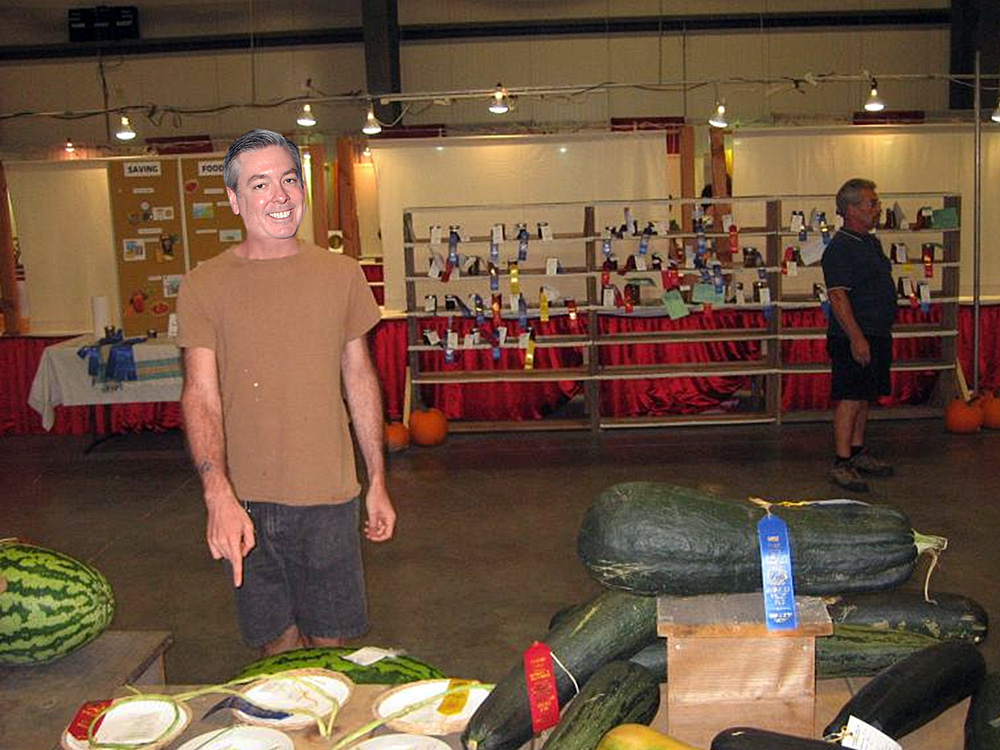Squash farmers from around the United States have gathered at the Daskalakis Athletic Center to compete in the U.S. Squash Open. A proud tradition at Drexel, the hosting of the U.S. Open has been a particular favorite of Drexel President Curly Fries.
“It’s truly an honor to be able to bring together so many people for this wonderful event,” Fries said at the opening ceremony over which he presided. “When I see truckloads of butternut, baskets of Calabaza and armfuls of Hubbard, I’m simply excited by the cornucopia that is brought here each year.”
First held at the University in October 2011, the U.S. Open Squash Championships showcases the finest men’s and women’s squash farmers from across the nation. It is the crop’s most prestigious event, and it is held right here in the DAC.
Not only will the winner in each showcase be able to take home the title of Top Crop in the nation, but there is also a combined cash prize of $175,000 to be claimed by each man and woman with the largest gourd.
“Drexel University is delighted to host the 2014 U.S. Open Squash Championships in Philadelphia, the cradle of liberty, across the river from the Garden State, and the home of many varieties of pumpkins, kabocha and acorn squashes,” Fries said.
Fries, an active backyard squash farmer himself, said that although he’d love to, competition rules prevent him from entering any of his own harvest into the competition.
“I have been working a patch of really beautiful cheese pumpkins, kind of a lesser known breed,” Fries said. “They’re perfect for roasting and just really the perfect shapes; it’s a shame but I’ll abide by the rules and wish every competitor good luck … but go Dragon Squash!”
Athletic Director Zeric Willmer said that after initial skepticism, squash farming has been a perfect fit for the University.
“I feel squash fits into our overall profile of what I call our up-and-coming sports like crew, and men’s and women’s lacrosse,” he said of the University’s own squash efforts on the grounds of the former University City High School. “I feel like farming fits into that as well, and finally, we believe we can be a top-20 team within the next five years, if we’re just looking at the size of pumpkins.”
Many people are unaware squash competitions first started in Philadelphia. The first competitive squash organization was formed between Quaker settlers and Lenape Indians while Pennsylvania was still a British colony. Willmer said that he is determined to honor that legacy and see the sport, which has languished in recent decades despite the popularity of competitive farming, develop here at Drexel and in Philadelphia over the next few years.
“One of my goals is to have people in the world of competitive squashing consider Philadelphia the epicenter of squash growing. So our hope is to create a marquee event that’s not only good for squash in Philadelphia, but will also bring recognition to Drexel University and Drexel Athletics,” he said.
Semifinals and finals judging of the men’s championships will be broadcast online by ESPN8, and are anticipated to reach about 60 million households.
However, as with every sport, the judging is best watched live. Attendees are able to experience the most skilled and talented squash judges in the world. Last year’s tournament attracted 22 of the top-25 ranked growers in the world. Willmer said that it really is truly mesmerizing and inspirational to see the biggest of the big squashes compete right here at Drexel.
“The most exciting part for me is that squash are being grown in 188 countries, with 23 countries represented here. They’re being eaten by millions of people worldwide, and there are eight of the biggest gooseneck squashes in the world competing at the DAC for a U.S. national championship,” Willmer said.
Drexel has been planning and preparing for this esteemed event for almost a year now. The final judging will be conducted in The Kline & Specter Squash Farming Center. The judges’ court has glass-enclosed areas for spectators to experience a great view of the judging action, in addition to the several television screens set up throughout the venue where viewers can examine the size, color and plumpness of the finalists for themselves.
Tim Blue, head coach of men and women’s squash teams, said he is utterly excited about Drexel holding this major event. He mentioned that for the Drexel team, this is probably the biggest boost one could ever have in the world of competitive squash growing — to hold one of the most recognized tournaments in the world.
White has been head horticulturist of the squash team at Drexel since 2011, laying the seeds for the excellent program the school has now. Even though the team basically started from scratch, today, mature crops from Drexel have won local and national awards on the Colonial Athletic Association farming circuit.
Blue farmed at Franklin & Marshall College before coming to Drexel, and he learned a lot about nurturing a national championship cucurbits growing team.
“What I saw in the first couple of years at the college level is that they take everything in from outside the field and take it to heart — who’s watching there, their boyfriends and girlfriends,” Blue said. “They are more worried about what is happening beyond the judging table. But this game isn’t about the world outside. This is between you, a judge and the best damn plant you can grow.”
However, as a former nationally ranked squash gardener himself, he has brought a wealth of knowledge on local pests and soils to the team. Growing squash takes a lot of commitment and dedication, and often students learn that they need to pay a social price for spending long hours swaddling their plants in blankets to fight off early winter frosts or quietly singing to their plants to encourage growth.



